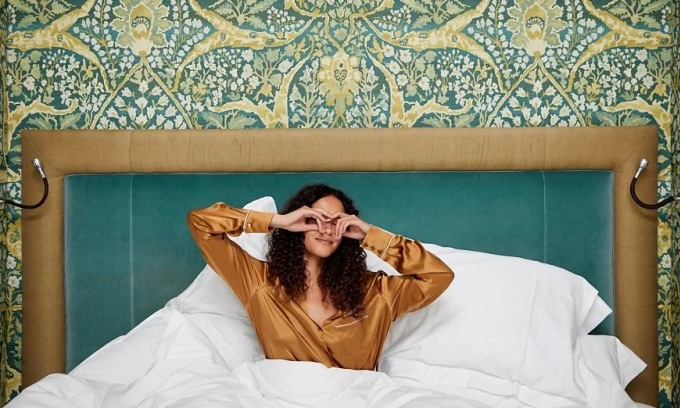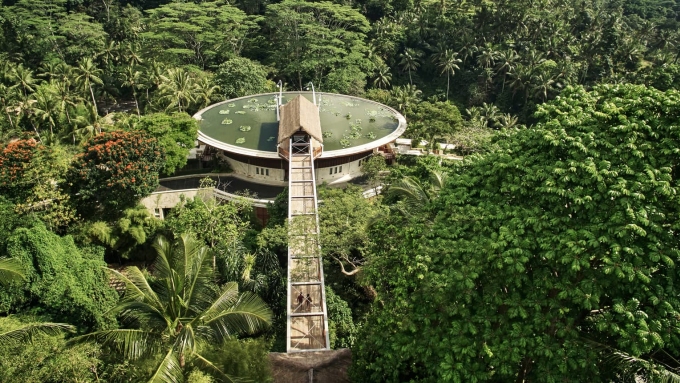A report by the Institute for Global Health published in November 2023, forecasts a more than doubling of the health and wellness tourism market from 2022 to 2027, with spending on an upward trajectory, rising from $651 billion in 2022 to $868 billion in 2023 and projected to reach $1,000 billion in 2024.

A London hotel offering a two-night sleep-focused package. Image: Rocco Forte Hotels
Rebecca Robbins, a sleep scientist at the Harvard University School of Medicine’s Sleep Science Program, shared with Fortune, a New York-based business magazine: “Clients are increasingly prioritizing sleep while traveling and seeking ways to optimize their sleep during their trip.” Nowadays, travelers are inclined towards wellness and restorative travel experiences that offer mental healing.
Robbins noted that while most hotels focus their promotions on entertainment and culinary offerings, many are now boosting revenues by catering to the sleep needs of travelers. “Providing a good night’s sleep for guests is a critical aspect of the sleep tourism market,” she remarked.
Travel experts attribute this trend to the demands of modern busy lifestyles that keep people confined indoors. An increasing number of travelers are seeking natural environments like forests, mountains, and beaches to enhance their sleep quality and improve their physical and mental well-being. Health professionals affirm that many resorts in the Asian region are leveraging their natural surroundings to develop sleep improvement programs for guests.
Sindhu Gangola, owner and operator of Grand Oak Manor, a resort in the northern Indian state of Uttarakhand, explained that their resort offers nature-connected experiences to enhance guests’ sleep during their stay. The resort boasts views of the Himalayas, oak forests, and rhododendron groves, providing a serene ambiance for visitors.
Another example is Pangong Tso, a lake nestled in the high mountains of the Ladakh region in India, which also focuses on the sleep experience. Bhawna Verma of Aspire Ladakh, a sustainable hotel business, shared that guests find peace in the tranquil natural surroundings. Even if they stay up late stargazing, they still sleep soundly and feel refreshed in the morning.
Some mid-range hotels are also catching on to this sleep tourism trend by offering sleep-enhancing amenities such as eye masks, blackout curtains, dim lighting, pressure-adjustable mattresses, lullaby libraries, white noise machines, and pre-sleep meditation guides.

A forest resort in Bali. Image: Four Seasons Bali
The Four Seasons Resort Bali, located in Sayan, offers a Sacred Nap experience, featuring a womb-like hammock that lulls guests to sleep surrounded by the sounds of nature. The Shangri-La Hotel in Singapore has introduced a Better Sleep program that combines spa therapies with in-room amenities such as pillow mists, wellness baths, and a menu of sleep-promoting dishes crafted from carefully selected ingredients.
In Phuket, Thailand, a wellness resort offers a sleep recovery program supervised by a doctor who provides direct consultations. They also emphasize spa and wellness services, including movement programs and sound therapy.
Some destinations design personalized nutrition plans to support the needs of individual travelers. The Ananda in the Himalayas resort in India offers doctor-prescribed insomnia treatments, including herbal sleep aids containing chamomile, nutmeg, mace, and saffron.
They also promote emotional healing programs conducted by mental health experts. Techniques such as regression and hypnosis are employed to help guests achieve emotional balance and a relaxed state of mind conducive to restful sleep.
Sleep tourism is also gaining popularity in Vietnam. In March, the Netherlands-based booking platform Booking.com revealed that Vietnam ranked 6th among Asia-Pacific destinations where travelers wanted to visit to get better sleep, with 67% of respondents stating that the primary purpose of their trip was to enjoy uninterrupted, good-quality sleep.
































